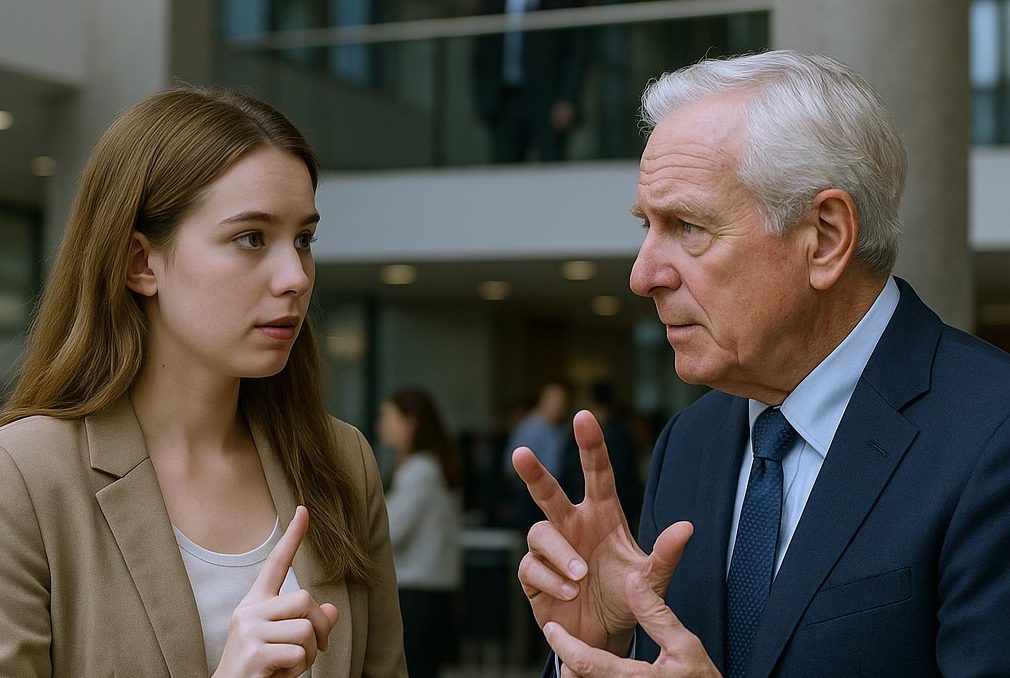Half a year ago, I felt utterly invisible at Meridian Communications. At just 22 years old, I was an intern within the marketing department, spending my days making photocopies, organizing supplies in the storage room, and trying earnestly to remain unnoticed at one of Chicago’s most esteemed advertising agencies. I was the type to eat lunch alone at my desk, avoid elevator chats by taking the stairs, and never once dared to speak during meetings.
However, this reserved version of myself was a drastic contrast to who I had been in high school. Back then, I was confident, outgoing, and somewhat popular. University, though, had been a series of minor setbacks and rejections that gradually eroded my self-esteem. By the time I graduated with a degree in communications, I felt like just a shadow of my former self.
The internship at Meridian was supposed to mark a fresh start—a chance to prove I could matter in the real world. Instead, it quickly became another place where I felt small and inconsequential. The single anchor of meaning in my life was my little brother Danny. At eight years old, he was born deaf. While my parents struggled to master sign language, I threw myself into learning it with such passion that even I was surprised.
I spent hours practicing—watching videos and attending courses at the community center. Danny was my inspiration: because of him, I had something valuable to learn and develop, a skill that could genuinely impact someone’s life. By the time I started my internship, I was already fluent in American Sign Language.
That skill was the only thing I felt genuinely proud of, even though it seemed irrelevant to my job. In an environment filled with client presentations and advertising campaigns, my ability to communicate with the deaf community felt like a pretty but unnecessary talent—akin to playing the violin in a room where everyone listens exclusively to electric guitars.
The morning that altered everything began just like any other. It was a bustling October Tuesday, and the Meridian building hummed with frenetic energy as people prepared for a critical client presentation. Everyone was busy and stressed, rushing to complete their tasks. I was stationed at the reception, organizing materials, when I noticed him.
An elderly man in his seventies, impeccably dressed in a dark blue suit that spoke of elegance and expense. His silver hair was neatly combed, posture upright and dignified—a man who had built a life filled with accomplishments. But behind his eyes, there was something else: a deep frustration and sadness.
He stood at the counter with Jessica, our receptionist, who was trying to understand his needs without success. “Sir, I’m sorry, I don’t understand what you are trying to say. Do you have an appointment? Could you please write down the name of the person you’d like to meet?” she asked politely.
He gestured, moving his mouth in silent words no one could grasp. Then I noticed the subtle details: the hand motions, facial expressions, and attempts to finger-spell. He was signing.
Jessica, though kind, was overwhelmed and eventually turned away to help another visitor. The man remained at the desk, feeling lost and overlooked, his gaze slowly dropping. Colleagues hurried past without even a glance—stylish executives, creatives clutching project folders, and interns scrambling toward meetings. No one paused.
My initial impulse was to stay put. After all, I was just an intern and needed to focus on my duties, not intervene. But then I thought of Danny—how he felt ignored, as if his deafness rendered him invisible. In that moment, I made a decision that would change my life.
With my heart pounding, I moved toward the counter. The man met my eyes, filled with resignation, expecting another dismissive reaction. Taking a deep breath, I signed, “Hello, my name is Catherine. May I assist you?”
His face lit up instantly—astonishment giving way to relief, followed by a broad, genuine smile I had not seen since he arrived.
“You know sign language!” he signed fluently, revealing years of familiarity. “Thank goodness—I was beginning to think no one here would understand.”
“I’m truly sorry for the difficulties you’ve faced. How can I help you?” I asked.
“I’m here to see my son,” he explained. “But I don’t know how to reach him. I don’t have an appointment, and the young lady at the desk,” he gestured toward Jessica, “seemed too busy.”
“What is your son’s name?” I signed.
He paused a moment, his face revealing a mix of pride and uncertainty. Then he spelled out: Michael Hartwell.
My breath caught. Michael Hartwell—the CEO of Meridian Communications. His name was on the plaque at the entrance, and his office occupied the entire top floor. The mere presence of him in the corridors made everyone’s anxiety skyrocket.
“Mr. Hartwell is your son?” I signed carefully, hiding my astonishment.
“This encounter reminded me that sometimes, the smallest gestures open the doors to the greatest connections.”
Key Insight: Showing empathy and taking initiative can transform not only our experiences but also those of others around us.
This day will forever stand out to me—a reminder that a single act of kindness and communication bridges gaps we might otherwise overlook. Embracing my knowledge of sign language not only gave me confidence but also highlighted the importance of inclusivity in professional environments.
